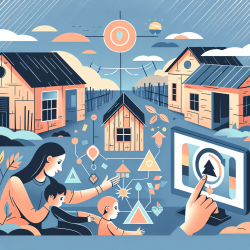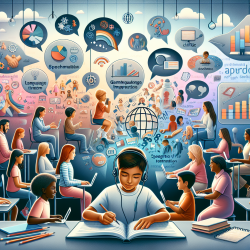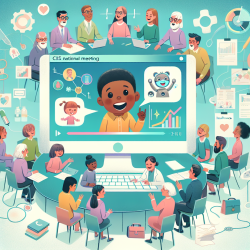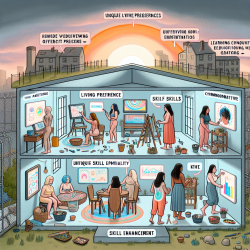The COVID-19 pandemic has fundamentally altered how we interact with our world, causing a significant shift in perceptual world-familiarity. This concept, introduced by Janna van Grunsven in her paper "Perceptual breakdown during a global pandemic: introducing phenomenological insights for digital mental health purposes," refers to the loss of the effortless engagement with our environment that characterizes our everyday lives. Understanding this loss is crucial for practitioners providing digital mental health (DMH) services, especially for children who rely heavily on familiar structures and routines.
Perceptual world-familiarity involves the seamless interaction with our surroundings based on our needs, skills, and habits. For example, a child who is accustomed to a classroom setting will perceive the classroom as a space that affords learning and social interaction. The pandemic has disrupted these familiar environments, replacing them with new, often less intuitive, digital spaces. This shift can lead to increased cognitive load and emotional distress, impacting children's well-being and their ability to engage in therapy.
Van Grunsven's research highlights several key points that can help practitioners enhance their DMH services:
- Recognize the loss: Acknowledge that children may be grieving the loss of their familiar perceptual world. This grief can manifest as inchoate feelings of sadness or unease. Understanding this can help practitioners validate these emotions and provide appropriate support.
- Adapt therapy environments: Create digital therapy spaces that mimic familiar settings as closely as possible. For instance, using virtual backgrounds that resemble a child's classroom or home can help re-establish a sense of familiarity.
- Utilize social interaction technologies: Integrate technologies that support non-verbal communication, such as virtual reality (VR) or bio-signal communication, to enhance the sense of presence and empathy in online sessions.
- Individualize approaches: Recognize that the impact of perceptual world-familiarity loss varies among children. Tailor therapeutic interventions to address the specific needs and coping mechanisms of each child.
Practitioners are encouraged to further explore the concept of perceptual world-familiarity and its implications for DMH. This understanding can help prevent misdiagnoses and misdirected treatments, ultimately leading to better therapeutic outcomes for children.
To read the original research paper, please follow this link: Perceptual breakdown during a global pandemic: introducing phenomenological insights for digital mental health purposes.










